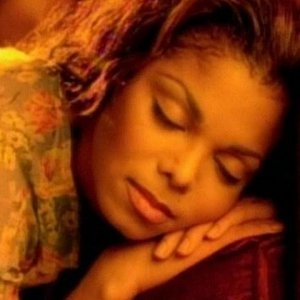- Sep 27, 2005
- 22,333
- 4,052
- Occupation
- Employed

By MICHEL MARRIOTT
Published: March 31, 2006
African-Americans are steadily gaining access to and ease with the Internet, signaling a remarkable closing of the "digital divide" that many experts had worried would be a crippling disadvantage in achieving success.
Civil rights leaders, educators and national policy makers warned for years that the Internet was bypassing blacks and some Hispanics as whites and Asian-Americans were rapidly increasing their use of it.
But the falling price of laptops, more computers in public schools and libraries and the newest generation of cellphones and hand-held devices that connect to the Internet have all contributed to closing the divide, Internet experts say.
Another powerful influence in attracting blacks and other minorities to the Internet has been the explosive evolution of the Internet itself, once mostly a tool used by researchers, which has become a cultural crossroad of work, play and social interaction.
Studies and mounting anecdotal evidence now suggest that blacks, even some of those at the lower end of the economic scale, are making significant gains. As a result, organizations that serve African-Americans, as well as companies seeking their business, are increasingly turning to the Internet to reach out to them.
"What digital divide?" Magic Johnson, the basketball legend, asked rhetorically in an interview about his new Internet campaign deal with the Ford Motor Company's Lincoln Mercury division to use the Internet to promote cars to black prospective buyers.
The sharpest growth in Internet access and use is among young people. But blacks and other members of minorities of various ages are also merging onto the digital information highway as never before.
According to a Pew national survey of people 18 and older, completed in February, 74 percent of whites go online, 61 percent of African-Americans do and 80 percent of English-speaking Hispanic-Americans report using the Internet. The survey did not look at non-English-speaking Hispanics, who some experts believe are not gaining access to the Internet in large numbers.
In a similar Pew survey in 1998, just 42 percent of white American adults said they used the Internet while only 23 percent of African-American adults did so. Forty percent of English-speaking Hispanic-Americans said they used the Internet.
Despite the dissolving gap, some groups like the Intel Computer Clubhouse Network, which introduces digital technologies to young people, say the digital divide is still vast in more subtle ways. Instant messaging and downloading music is one thing, said Marlon Orozco, program manager at the network's Boston clubhouse, but he would like to see black and Hispanic teenagers use the Internet in more challenging ways, like building virtual communities or promoting their businesses.
Vicky Rideout, vice president of the Henry J. Kaiser Family Foundation, which has studied Internet use by race, ethnicity and age, cautioned that a new dimension of the digital divide might be opening because groups that were newer to the Internet tended to use less-advanced hardware and had slower connection speeds.
"The type and meaningful quality of access is, in some ways, a more challenging divide that remains," Ms. Rideout said. "This has an impact on things like homework."
In addition, Internet access solely at institutions can put students at a disadvantage. Schools and other institutions seldom operate round the clock, seven days a week, which is especially an issue for students, said Andy Carvin, coordinator for the Digital Divide Network, an international group that seeks to close the gap.
But not everyone agrees that minorities tend toward less-advanced use of the Internet. Pippa Norris, a lecturer on comparative politics at Harvard who has written extensively about the digital divide, said members of minorities had been shown to use the Internet to search for jobs and to connect to a wide variety of educational opportunities.
"The simple assumption that the Internet is a luxury is being disputed by this group," Ms. Norris said.
The divide was considered so dire a decade ago that scholars, philanthropists and even President Bill Clinton in his 1996 State of the Union address fretted over just what the gap would mean in lost educational and employment opportunities for young people who were not wired.
http://www.nytimes.com/2006/03/31/us/31divide.html?hp&ex=1143867600&en=1f2932d1bfa86422&ei=5094&partner=homepage








 ... please make yourself at home ...
... please make yourself at home ... 